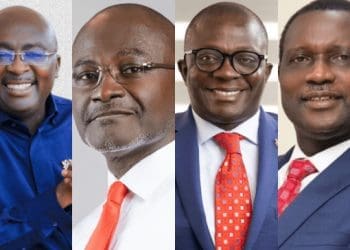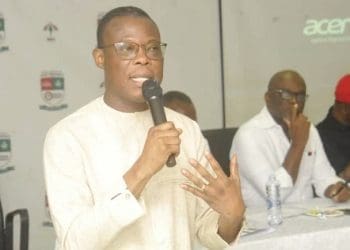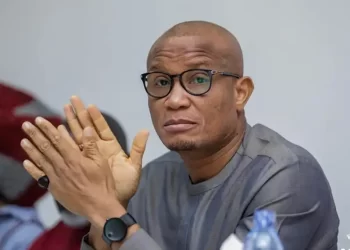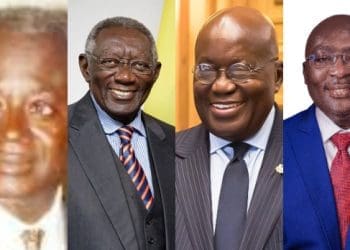The first-ever G20 Summit hosted on African soil opened in Johannesburg on Saturday with a mixture of diplomatic celebration and geopolitical friction, culminating in the adoption of a major declaration on the climate crisis and global economic governance.
The early breakthrough came despite intense objections from the United States and the complete absence of the US delegation following a boycott by President Donald Trump.
The declaration, according to South African officials, was the product of a full year of negotiations and could not be reopened under any circumstances.
A spokesperson for President Cyril Ramaphosa explained that Washington had raised strong concerns about the climate language in the text, but that South Africa and the rest of the G20 membership had collectively agreed that the document stood as it was.
“We had the entire year of working towards this adoption, and the past week has been quite intense,” the spokesperson noted, signalling Pretoria’s determination to defend the integrity of the process.
Even as leaders gathered for the opening session, the geopolitical backdrop around Ukraine remained impossible to ignore. European leaders convening on the sidelines of the summit grappled with Washington’s proposed 28-point peace plan to end Russia’s near four-year war against Ukraine.
The European Union, represented by Commission President Ursula von der Leyen and Council President Antonio Costa, released a statement describing the document as a draft requiring further work.
The EU insisted it would not support any peace arrangement that undermined Ukraine’s sovereignty.
“We are clear on the principle that borders must not be changed by force,” the statement said, emphasising the union’s longstanding position on Moscow’s invasion.
The absence of the United States from the summit’s opening day raised eyebrows but did little to dampen the significance of the moment for Africa.
In his opening speech, President Ramaphosa spoke with evident pride about the symbolism of the G20 gathering in Johannesburg. “As this is the first G20 leaders’ summit to be held in Africa, it carries the hopes and must reflect the aspirations of the people of this continent and of the world,” he told delegates.
He cautioned participants against allowing disputes or political tensions to diminish the value and credibility of the first African G20 presidency.
Ramaphosa’s speech set a philosophical and policy-oriented tone, dwelling on the structural inequalities that continue to divide the world.
He described the stark disparities in wealth and development both within and between countries as an impediment to sustainable growth and long-term global stability.
It was, in his view, essential to dismantle barriers of economic status, gender, race and geography in order to unlock a more inclusive international order.
Sustainability, he argued, required a commitment to meeting the needs of the present generation without compromising the prospects of those yet to come.
The South African President underscored that his country, as a founding member of the G20, had consistently worked to elevate the development priorities of the Global South and the African continent.
He maintained that this was not only important for Africa but vital for global security, as equitable development reduces the pressure on resources, limits uncontrolled population movements and diminishes the risk of conflict.
Stability, he added, attracts investment, improves long-term economic planning and shields countries from global shocks. Thriving, inclusive economies, he said, lift people out of poverty, encourage greater investment and trade, and generate revenue for public goods.
Ramaphosa described the world’s current threats—geopolitical tension, global warming, pandemics, energy and food insecurity, unemployment, persistent inequality and armed conflict—as interconnected crises that jeopardise humanity’s future.
He stressed the urgency of accelerating progress toward the United Nations Sustainable Development Goals by 2030.
Climate-induced natural disasters, he warned, were inflicting catastrophic losses, particularly in countries unable to fund large-scale recovery and reconstruction efforts.

He noted that the global community, including financial institutions, development banks and the private sector, must significantly scale up support for post-disaster reconstruction. Debt sustainability, especially for low-income countries, must also become a priority, with the G20 renewing its commitment to advancing comprehensive debt solutions.
Ramaphosa added that financing for a just energy transition needed to increase substantially to support developing nations seeking to balance economic growth with climate commitments. He also emphasised Africa’s need to harness its critical minerals more effectively through local processing and beneficiation so that resource-rich countries benefit from value addition rather than exporting raw materials at minimal gain.
His address noted that the South African presidency had also championed issues such as inclusive growth, industrialisation, employment creation, food security and the ethical and economic implications of artificial intelligence.
Much of this work, he said, had been compiled in the G20@20 Review, which chronicles the group’s achievements and challenges over the past two decades while setting out proposals to help the institution become more focused on its core mission.
Ramaphosa reminded delegates that the Johannesburg summit had the responsibility of safeguarding the G20’s credibility at a time when global governance faces unprecedented strain.
He expressed appreciation to all delegations that had collaborated “in good faith” to produce a consensus declaration, describing its adoption as a testament to the enduring value of multilateralism. The final document, he said, sent a message of hope and demonstrated that multilateral cooperation “can and does deliver,” reaffirming the pledge that no person, community or country should be left behind.
European Commission President Ursula von der Leyen echoed this sentiment in her address, calling for growth that was inclusive and sustainable.
She emphasised that correcting global economic imbalances required coordinated action among institutions such as the International Monetary Fund, the World Trade Organisation and the World Bank.
Europe, she acknowledged, had its own responsibilities in stimulating investment, but she stressed that global inequality could only be tackled if major economies worked collectively.
Despite the US absence, Washington’s presence was felt throughout the summit due to the controversy surrounding the proposed Ukraine peace plan.
British Prime Minister Keir Starmer, French President Emmanuel Macron and German Chancellor Friedrich Merz conferred privately to assess the proposal and discuss potential alternatives.
In their joint statement, European leaders welcomed American efforts but maintained that the draft contained elements requiring substantial refinement if it were to form the basis of a just and lasting peace.
As the summit entered its final day, analysts noted that while the political tensions were unmistakable, Africa’s debut as G20 host had demonstrated the continent’s capacity to lead complex global discussions.
The disagreements over Ukraine highlighted the fragility of international diplomacy, yet the smooth adoption of the climate and development declaration strengthened the perception that the G20 remains an indispensable platform for global problem-solving.
For Pretoria, the historic significance of the moment was clear. Africa’s first G20 presidency had not only elevated the continent’s priorities but also showcased its ability to guide the world’s premier economic forum during a time of profound international uncertainty.
The hope among African leaders is that Johannesburg will be remembered not for the geopolitical absences or tensions, but for its insistence on fairness, sustainability and shared prosperity in shaping the global agenda.













